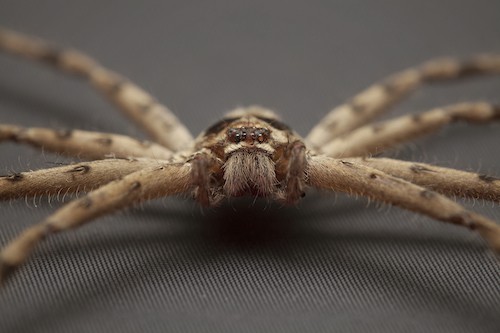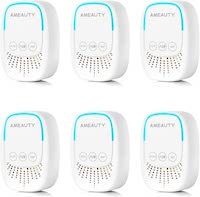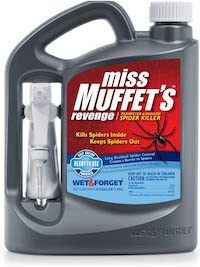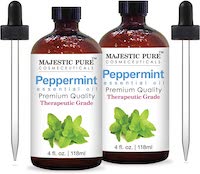What is your basement like? Is it large and spacious with boxes, tools, and the treadmill you promised to use every single day? Is it moist and dark? Has it been turned into a media room for your kids? There are many kinds of basements, but they all have one thing in common: spiders. Spiders live comfortably in dark, dingy places in your home, such as the basement. If not kept clean, most basements tend to be filled with spider webs and other pests.
Why Does My Basement Have So Many Spiders? Spiders love basements because they are dark and damp spaces and present an abundance of prey and resources. Spiders are also in basements because these are areas that are rarely disturbed or cleaned. If you cut off their food supply and make it uncomfortable for them, they’re a lot less likely to stay in your basement.
 What Kind of Spiders are in Your Basement?
What Kind of Spiders are in Your Basement?
Although many people are terrified of spiders lurking in their homes, the fact is that most common house spiders pose little threat. Before you start looking for them, you might want to learn more about the types of spiders you may be looking for. Common house spiders can be divided into two groups:
- Hunting spiders
- Web-building spiders
Most spiders that hide in basements are web builders. Common basement-dwelling spider species include funnel weavers, cellar spiders, comb-footed spiders, and crevice spiders.
Beware of Dangerous Spiders
Keep a special eye out for black widows and brown recluse spiders. These two species can be extremely dangerous. They like secluded spaces and although they aren’t typically aggressive, they have toxic venom and might just strike when threatened.
- The black widow is black and shiny with a red hourglass-shaped marking on its abdomen. Symptoms from this bite may include fever, increased blood pressure, sweating, and nausea.
- The brown recluse is light to dark brown with violin-shaped markings on its back. Although biting from this spider can be rare, their bites can become painful after several hours and sometimes produce open sores. Bite symptoms include a burning sensation at the bite site, restlessness, fever, and difficulty sleeping.
7 Ways to Get Rid of Spiders in Your Basement
To get rid of spiders from your basement, you’ll want to look for the places they can hide and block them. After that, you can remove any cobwebs and use repellents. Here is a list solutions to get rid of spiders in your basement:
- Ultrasonic Pest Repeller
- Seal Small Openings and Cracks in Your Basement
- Don’t stack wood
- Keep clutter from building up
- Eliminate other pests
- Essential Oils
- Spider Insecticides
1. Use an Ultrasonic Device
The simplest and easiest way to keep spiders out of your house or basement is to use ultrasonic and electromagnetic waves. An ultrasonic pest repeller device affects a spider’s neurological auditory, making it stay away from your home.
2. Seal Small Openings and Cracks in Your Basement
Search for cracks and gaps around your basement which serve as the gateways to enter the basement. If the openings and cracks are large, seal them using caulk or water-based wood filler. If it’s a small crack, you can use a spray coating such as a flexible rubber coating spray.
3. Don’t stack wood
Spiders, especially black widows, like to hide inside woodpiles and prey on the insects that live there. Instead of storing wood in your basement, consider stacking it in the backyard or somewhere outdoors.
4. Keep clutter from building up
Basements are one of the most cluttered areas in a home. This is why spiders are attracted to basements! If you’ve ever needed a reason to declutter your home, now you have one. Spiders like to lurk in the shadows of your clutter so if you want to keep them out of your home, you need to make sure they don’t have a comfy home, to begin with.
Spiders thrive in places that are messy because it’s the clutter that attracts other insects. Clean and organize your basement by removing anything that’s no longer needed. Remove random piles of books, boxes of clothes, shoes, papers, toys, or anything else that might accumulate in a pile somewhere and give them away, donate them, or hold a yard sale.
For the remaining stuff in your basement that you are keeping, organize it in storage containers. Sealable plastic containers are best because they keep spiders and spider food out. It’s also recommended to store things in plastic or other boxes made of material instead of paper since paper boxes are prone to cockroach attacks. You’ll want to make sure anything you keep sits away from the wall to avoid the formation of spider webs on them.
5. Eliminate other pests
Spiders hang out in basements to search for food. Their food supply usually consists of mosquitoes, termites, tiny roaches, etc. Removing the food supply from your basement will decrease the chances of spiders dwelling there.
6. Essential Oils
Natural oils such as peppermint, eucalyptus, and lemon are very strong. The smell of peppermint is too pungent for insects and spiders hate the citrus aroma of lemon oil, so they make the perfect repellent to keep the creatures away.
Mix 5-10 drops of either oil with 100 ml of water and spray it through your basement. Repeat this process every day for maximum results. You can also soak cotton balls in the oil and place them around areas in the basement that are more prone to spiders.
7. Insecticide to get rid of Spiders
Getting rid of other insects–the spider’s food supply–with an insecticide treatment can be effective in removing spiders from your basement. Spray insecticide around baseboards, in corners, under furniture, along cracks and crevices, corners, pipes, door frames, and windows.
What is the Best Natural Spider Repellent?
Vinegar, along with peppermint oil, is another very effective natural spider repellent. In addition to repelling spiders, it’ll also deter other basement-dwelling pests such as mice and ants.
How to make a home remedy spider Spray:
What you’ll need:
- 10 drops peppermint essential oil
- ½ cup distilled white vinegar
- 1-1/2 cups water
Directions: Mix all ingredients in a small spray bottle and shake it well. Spray on all four corners of the basement, underneath sinks, window sills, and other spots you suspect spiders live. Store the mixture in a cool, dark place.
Do pets repel spiders?
Pets are a natural spider repellent. Cats are the best since they chase anything that moves quickly. Take your pet to the basement frequently to look for moving creatures but be sure to protect your pet from bites from poisonous spiders.
What are Cobwebs?
Unlike spiderwebs, which spiders use to catch and trap their prey, cobwebs are leftover safety lines that spiders use to maneuver from one surface to another. The leftover strands are sticky and end up being a magnet for pollen, dust particles, and other debris.
How to Clean Cobwebs
Spiders hate to have their home disturbed. If you keep destroying their home, they’ll assume the area is unsafe and move somewhere else. Cobwebs are usually very dusty so it’s a good idea to wear a mask when cleaning them. Getting rid of them can be done with something you already use–your vacuum cleaner.
Using a vacuum extension nozzle is a good way to clean them so you don’t have to get close to the cobwebs. Get in the corners of ceilings and any other crooks and crannies, especially around doors and windows. Soft dusters with long handles work well, too. You can also get creative and put an old sock or cleaning cloth to the end of a broom or yardstick to wipe away any webs.
How do I prevent cobwebs?
The best way to prevent cobwebs is to get rid of spiders. The best way to prevent spiders from coming in is to block their access by sealing cracks in windows and door frames and cover your vents with insect screens. Outside, you’ll want to move any potted plants an extra couple of feet from your house. Spiders love to hide inside leafy vegetables and shrubs.
Interesting Facts About Spiders
Spiders are everywhere. This might freak you out, especially if you suffer from arachnophobia, but research suggests that you are never more than 10 feet away from a spider. Don’t worry, they’re usually minding their own business in some crack or crevice.
There are a lot of spiders. Currently, over 30,000 different species of spiders have been identified, but some scientists believe they’re a lot more to be discovered.
Not all spiders are deadly. Some spiders cause nasty bites from their venom, which can cause complications to your health, but the majority of spiders won’t bite humans and if they do, their venom isn’t strong enough to inflict damage.
Spiders are great for the environment they’re inhabiting. They eat other pests like earwigs, flies, moths, and disease-transmitting pests like mosquitoes and cockroaches. There are even spiders that will eat other not-so-friendly spiders.
Spiders have blue blood. The scientific explanation for this is that unlike human blood, where oxygen is bound to a molecule that contains iron, thus giving our blood its red color, in spider blood, the molecule that oxygen is bound to contain copper, which gives spider blood its blue color.
There are many ways to encounter spiders in your basement–none of which are any fun–but you don’t have to live with them in your basement or any other part of your house. If you have tried to eliminate the spiders in your basement without success, it may be time to contact a pest control service. Getting spiders out of your home and keeping them out is very hard to do but by following a few simple steps you can get rid of them.



